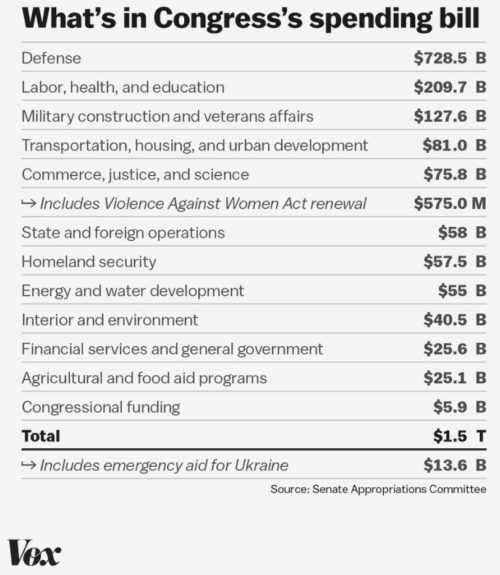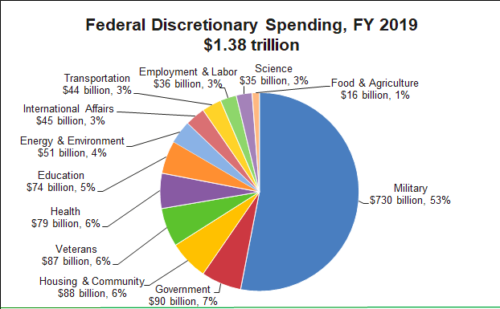Devastating news: Congress fails to extend school food waiver
For those of us who have long argued that it would be good for kids and for society if they were fed meals in school, no questions asked.
Nothing makes more sense to me than universal school meals.
- All kids get fed
- No stigmatizing of poor kids
- No school hassles over which kids qualify
- No lunch shaming
- No administative costs for policing school meal eligibility
I the pandemic did any good at all, it was to make school meals universal well into the second year.
It worked. Kids got fed. Schools didn’t have to police.
Yes it would cost money: an estimated $11 billion.
Let’s put that in context; it’s barely a rounding error. If I’ve done the math right, $11 billion = 0.007% of $1.5 trillion.
Our national priorities are clear from this chart. Defense is 48%, and all agriculture and food programs together are less than 0.02%.**

Or, to show what this looked like visually in 2019:

Politico explains the background
Under the Families First Coronavirus Response Act, passed in mid-March 2020, the Agriculture Department was first given authority to issue waivers for a slew of regulations….The authority now expires in June. School nutrition program operators have been optimistically assuming that the waivers would get extended one more school year to help them transition
back to normal, as supply chains continue to short schools of basic staples like chicken and whole grain bread, and food costs remain high and staffing is so low it’s approaching crisis levels.
You can read about the politics in the Politico article as well.
This congressional decision is nothing short of disgraceful. Congress should be ashamed.
What to do? Scream and shout to your congressional representatives to get this reversed.
- The $1.5 trillion spending package
- The omnibus appropriations bill is here.
- The House Appropriations Committee summary is here.
- The President’s proposed budget is here.
** Added note: Several readers wrote me to say that the Vox figures above refer to discretionary spending but leave out entitlements such as Social Security and SNAP. Others said the figures underestimate military spending because they do not include veterans benefits and other such items. Adding in all this would make the percentage for school meals even smaller.

